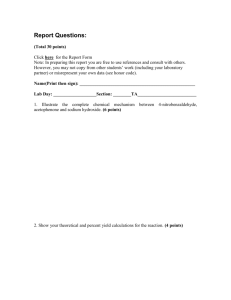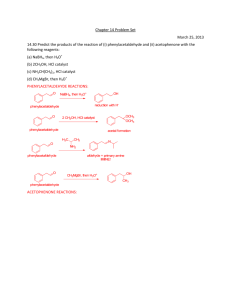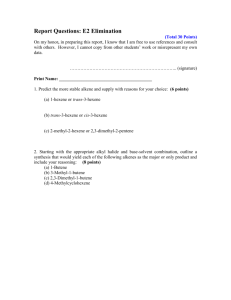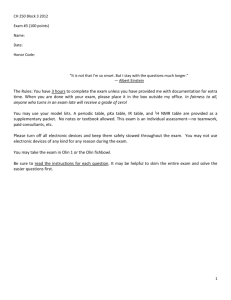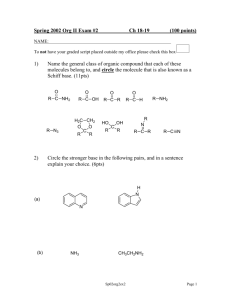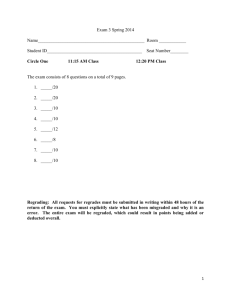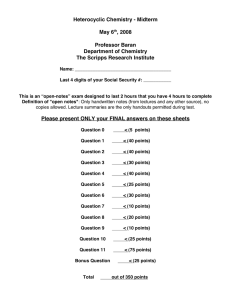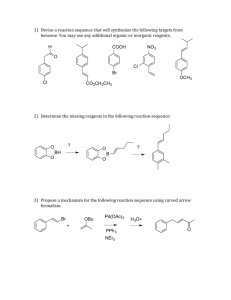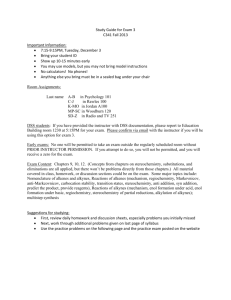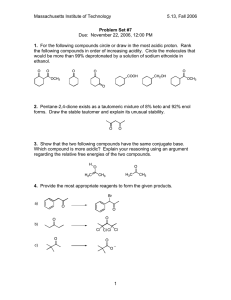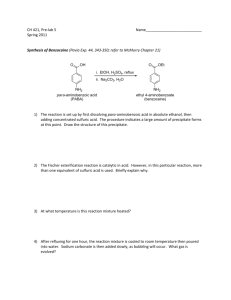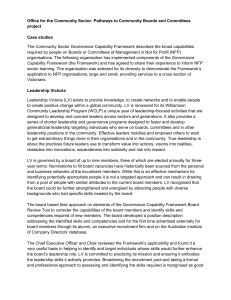Sample Final Exam A
advertisement
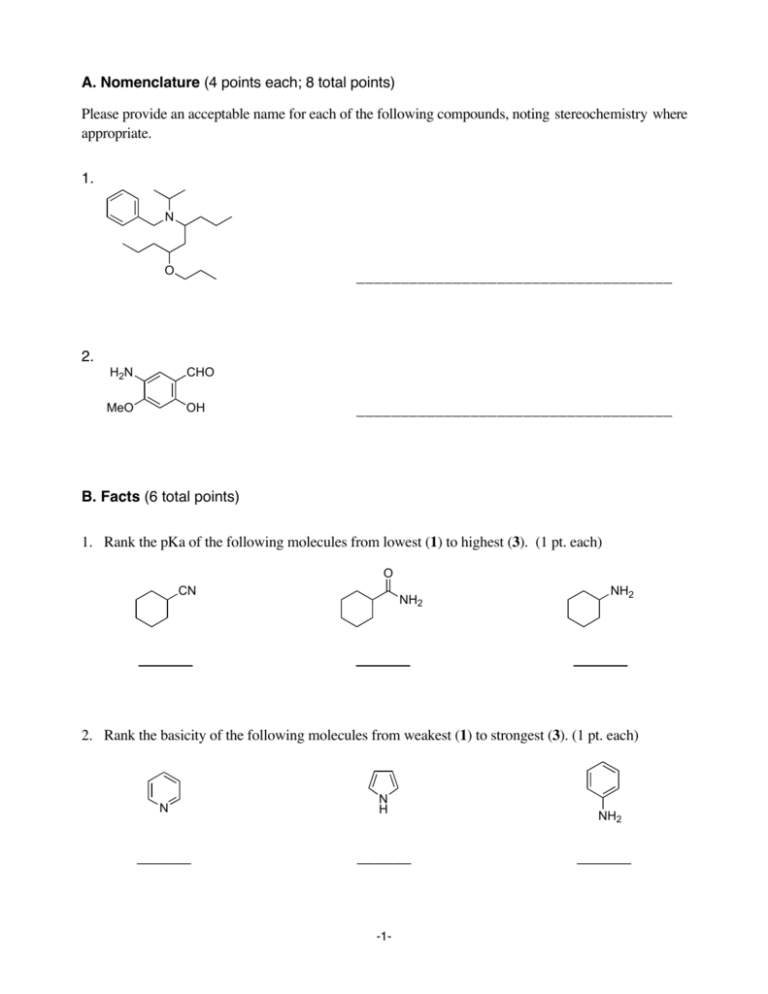
A. Nomenclature (4 points each; 8 total points) Please provide an acceptable name for each of the following compounds, noting stereochemistry where appropriate. 1. N O ____________________________________ 2. H2N CHO MeO OH ____________________________________ B. Facts (6 total points) 1. Rank the pKa of the following molecules from lowest (1) to highest (3). (1 pt. each) O CN NH2 NH2 2. Rank the basicity of the following molecules from weakest (1) to strongest (3). (1 pt. each) N N H -1- NH2 C. Reactions (9 points each; 36 total points) Please provide the major product, or necessary reagents, or starting material in the box provided below. Be sure your drawing indicates stereochemistry if applicable. 1. 1. NaOEt, EtOH O OEt EtO O 2. H3O+ / Δ 3. HN(CH3)2, H+ 4. Na(CH3COO)3BH 2. OCH3 OCH3 CN O2N N2+ F -2- C. Reactions (continued) 3. OH NH2 OH 4. 1. HNO3, H2SO4 2. Fe, HCl, then NaOH CH3 3. 2 Br2 4. NaNO2, HCl 5. H3PO2 -3- D. Mechanism: (20 points) Provide a reasonable mechanism for the reaction below. Use curved arrows to indicate "electron flow". Show all intermediates and all formal charges. If there is more than one resonance structure, you must show the "best" (i.e., lowest energy) structure. 2 O NaOEt OEt H3O+ CH3I EtOH Δ -4- O E. Synthesis: (20 points) Synthesize the molecule below using any of the following reagents: alkanes, alkenes, or alkynes having no more than t w o carbon atoms, benzene, NaCN, CO, CO2, any inorganic reagents, any oxidizing or reducing agents, and any peroxyacids. O CH2CH2NH2 O -5- NH F. Spectroscopy: (10 Points) A compound with the formula C 1 4H1 9NO2 exhibits the IR, 1H NMR, and proton-decoupled 13C NMR spectra shown on the following page. Please identify this compound and draw the structure in the box provided below. -6-
